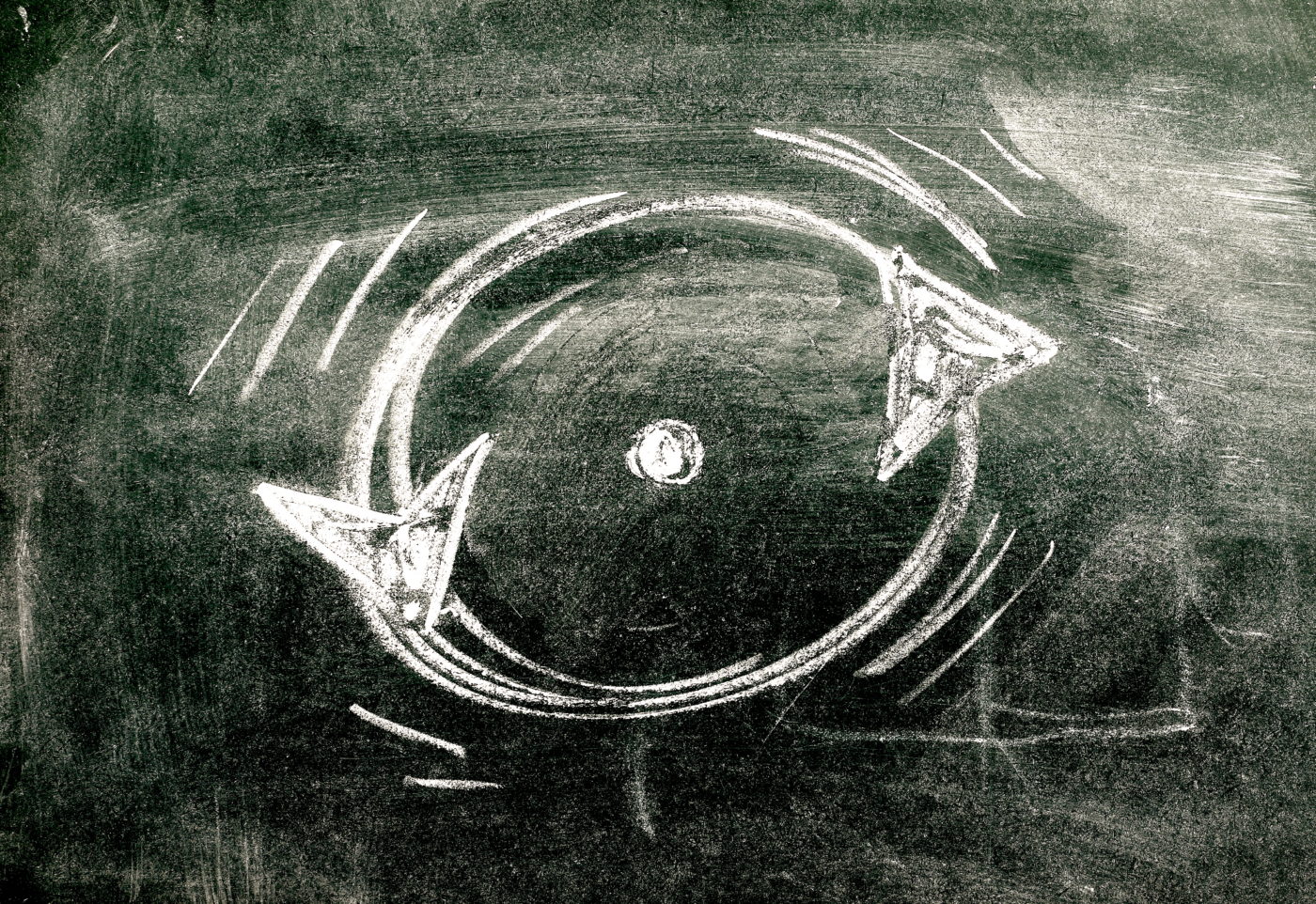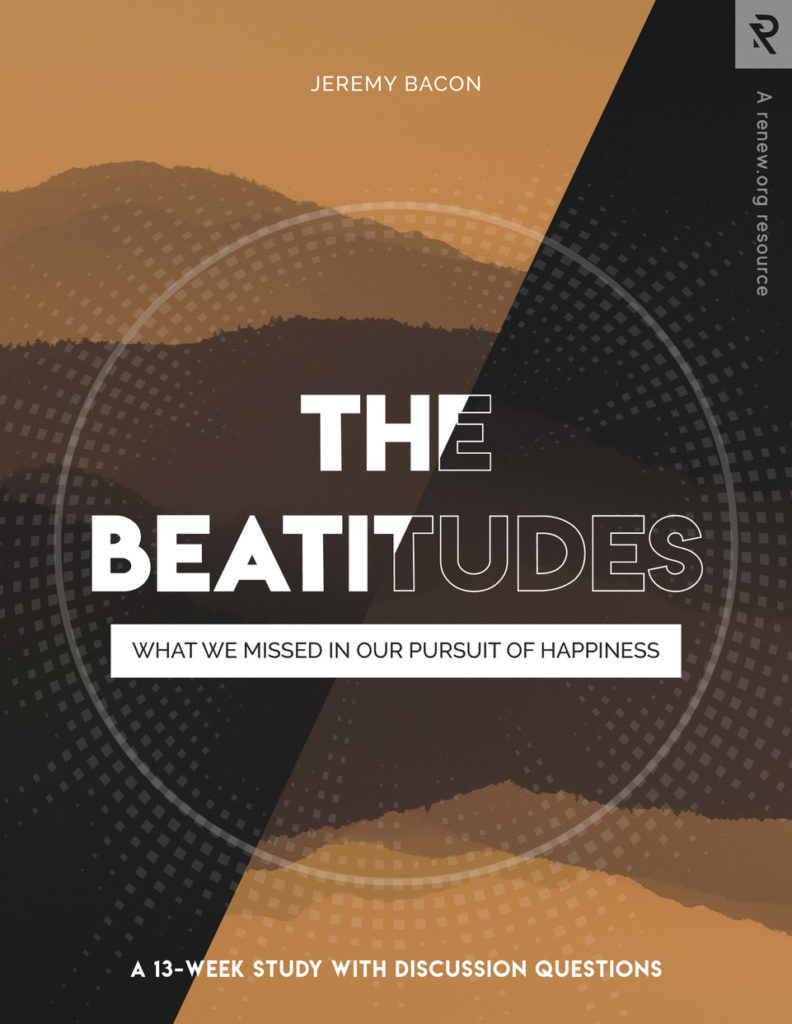
Sermon on the Mount: Judge Not Lest Ye Be Judged?
Judge not lest ye be judged. In the larger flow of the Sermon on the Mount, Jesus’ command to “Judge not” (Matt. 7:1-6) seems to come out of nowhere. Here are my best guesses for why it’s included at this point in the sermon.
First, in the same way that Deuteronomy seems loosely structured around the Ten Commandments, some people have observed that the Sermon on the Mount seems loosely structured around the Lord’s Prayer. Matthew 5 talks about attitudes that mirror the heart of God. When we have these attitudes, this is what the first line of the Lord’s Prayer looks like: “Your name be holy, your kingdom come, your will be done on earth as it is in heaven.”
Chapter 6 talks about our concern for physical things, as in “our daily bread” from the second line of the Lord’s Prayer. So then, the warning not to judge in 7:1-6 echoes the third line, “Forgive us our debts as we forgive our debtors.”
And the concluding material about wolves and wide paths to destruction (7:13-23) plays off of the last line, “Lead us not into temptation, but deliver us from the evil one.” In any case, we’re not making up the parallel between the issues of judging and forgiving. Luke also ties them together. He actually sandwiches the statement, “Forgive, and you will be forgiven” right in the middle of his discussion of judgmentalism (Luke 6:37-38).
“The concluding material about wolves and wide paths to destruction plays off of the last line, ‘Lead us not into temptation, but deliver us from the evil one.'”
Maybe there’s one other reason Matt. 7:1-6 occurs where it does. We’re pretty much at the end of the body of the Sermon on the Mount. Jesus has lifted the veil. He’s exposed the old world order for what it is. But there’s an insidious temptation, here. Those of us who grasp what Jesus is saying and are trying to walk his way could start looking a bit condescendingly on those who don’t. Spiritual growth itself can make it easy to stumble into a sense of moral superiority. Indeed, the assessment that we are more enlightened than they are can come from some of the very attitudes Jesus has preached against.
So Jesus’ last stop is to try to save us from judgmentalism.
Judgmentalism is the attitude that looks at others rather than at yourself. This is exactly what Jesus says: “Why do you look at the speck of sawdust in your brother’s eye and pay no attention to the plank in your own eye? How can you say to your brother, ‘Let me take the speck out of your eye,’ when all the time there is a plank in your own eye? You hypocrite, first take the plank out of your own eye” (Matt. 7:3-5).
Judge not lest ye be judged? “Judgmentalism is the attitude that looks at others rather than at yourself.”
Where does judgmentalism come from? Judgmentalism is often a way to regain a sense of power when you would otherwise feel powerless.[1] It makes you feel powerful when part of you actually feels quite vulnerable. Instead of feeling small, being the judge makes you feel bigger. Unfortunately, this necessarily means viewing someone else as “less than” you. Judgmentalism combines self-righteousness and condemnation to make you feel above them.[2]
The driving force behind this is usually your own inner dialogue. Part of your subconscious mind is telling you that, in some way or another, you are “not good enough.” If you haven’t started dealing with some of your issues, this voice is what makes you feel powerless. You have no answer to it. So you need to escape it somehow. The easiest way to do that is to externalize it—to project it onto someone else. “They’re not good enough!”
As human beings we have a remarkable capacity to avoid seeing things we don’t want to see, of avoiding conclusions (especially about ourselves) that we don’t want to reach. The trick is to focus your attention on something else. Like, say, whatever is wrong with that guy. This is not an active choice. It is a failure to choose. Our subconscious automatically re-directs our attention to things that are less personally painful. It takes a deliberate choice to face and work through the critical voices in our own head.
Judge not lest ye be judged? “As human beings we have a remarkable capacity to avoid seeing things we don’t want to see.”
Absent that choice, our mind splits, in a way. A lot of our beliefs (about ourselves, particularly) get stuffed away somewhere that is not consciously accessible. And beliefs that get sublimated that way become nasty little gremlins, wreaking havoc on our daily functioning. A time-honored result is that we can end up projecting our own faults (rightly or wrongly) onto others and railing against the exact things we struggle with (Rom. 2:1, 21-24). The measure we use is the one used against us (Matt. 7:2). This is the hypocrisy so often trumpeted by the non-believing world, and which Jesus himself points out (7:5). As one pornstar put it, the guys who protested her industry most vehemently on Sunday were the guys she danced for in the clubs the coming Friday.
Sometimes this fight with our inner dialogue is just gasoline on the fire. The fire itself can, in fact, be a response to something external. For instance, maybe someone did something you feel is wrong, but you don’t have the power to do anything about it. In our culture, that’s usually because you saw it on the news and they live hundreds of miles away. Whatever the case, their actions make you angry, and that anger has nowhere to go. The more enraged you are and the more impotent that rage is, the more you turn to judgmentalism.
Ironically, very little can trigger the judgmental response more than feeling judged. Pretty much by definition, being judged makes you feel small, “less than.” Like we said, our gut response to feeling “less than” is to try to make ourselves feel bigger again. There is a nasty cycle here. If I feel judged, that makes me want to judge. Instead of looking at myself and considering if the judgment has any merit, I’m more likely to look at someone else and see what’s wrong with them. And, of course, they do the exact same thing to me. Judging begets judging.
Judge not lest ye be judged? “If I feel judged, that makes me want to judge.”
This sounds a whole lot like, “Judge not, lest you be judged.” In Matthew 7:1, there’s ambiguity in whom we are being judged by—is it God or other people? Rather than resolving this ambiguity, Jesus seems to dive right into it. On the one hand, Matthew 7:1 points to being judged by other people.
We see this most clearly in the parallels between Matthew 7:1 and Matthew 7:6. In Matthew 7:1, there’s a negative imperative (don’t do something; specifically, “don’t judge”) followed by a warning of bad stuff that will happen if you do (“or you will be judged”). Matthew 7:6 follows the exact same pattern: negative imperative (“don’t give/throw”) followed by bad stuff that will happen if you do (“lest they tear you to pieces”). These look like bookends to the discussion on judgmentalism. In fact, 7:6 is probably just a more colorful version of 7:1, “Do not give dogs what is sacred; do not throw your pearls to pigs. If you do, they may trample them under their feet, and turn and tear you to pieces.”
Jesus has already fleshed out “judging” as feeling the need to go around pointing out what’s wrong with everyone else (Matt. 7:3-4). When you say, “Here, let me get the speck out of your eye,” judging and giving unwanted advice can be two ways of looking at the same thing. And people have pretty much always taken “pearls before swine” as advice that falls on deaf ears. Think about it. What happened the last time you gave someone unwanted advice? How did that go? Does “lest they turn and tear you to pieces” sound about right? In this light, Jesus is echoing Proverbs, “Whoever corrects a mocker invites insults; whoever rebukes the wicked incurs abuse” (Prov. 9:7).
Judge not lest ye be judged? “What happened the last time you gave someone unwanted advice? How did that go? Does ‘lest they turn and tear you to pieces’ sound about right?”
Now, if Matthew 7:1 is at least partly a warning against this cycle of person-to-person judging, that’s a problem. Because that is almost exactly how Christians react when this verse comes up. We don’t hear Jesus saying it. We hear some hypothetical non-believer saying, “How dare you judge us!” And we get defensive. Instead of looking inward, we look outward (which, as we said, IS judgmentalism). We basically respond to Matthew 7:1 by saying, “Yeah, Jesus says, ‘Don’t judge,’ but we need to judge because do you see what those people are doing?”
We’re almost at the end of the Sermon on the Mount. We can’t lose our focus this late in the game. Jesus doesn’t care what they are doing. He cares what’s going on in our hearts. Or, as Paul puts it, “What business is it of mine to judge those outside the church? Are you not to judge those inside? God will judge those outside” (1 Cor. 5:12-13a).
Note that, in 7:6, you’re giving holy things, pearls. This implies that your assessment of your brother (that speck in his eye) is right! There is something wrong with him. But 7:6 also points out how ridiculous it would be to think that your righteous pronouncements would help in any way. The people you’re giving them to are not in a place to receive them. That should be obvious (hence “dogs” and “pigs”). The reason it’s not obvious to you is because you are not seeing straight. There’s something blocking your vision.
Judgmentalism itself.
You can’t see them if you can’t look at you. As Dallas Willard puts it, how does Jesus know that the judger has a plank in his own eye? Because judgmentalism is the plank.[3]
Judge not lest ye be judged? “As Dallas Willard puts it, how does Jesus know that the judger has a plank in his own eye? Because judgmentalism is the plank.”
Judgmentalism blinds us to both us and them. In refusing to look at ourselves, it blinds us to all of our own faults. And it therefore keeps us locked up in them. If we can’t examine our own hearts, there’s no hope of getting over whatever sinful patterns are hiding there.
Moreover, judgmentalism itself becomes a double sin. First, it lowers other people in our eyes. It breaks the recognition of our common humanity. They aren’t “like me.” They are “less than.” Judgmentalism is a failure of empathy.
Empathy is understanding where the other person is coming from. It’s not a matter of excusing or even minimizing their behavior. It’s a matter of recognizing that there is a possible set of circumstances in which I could have ended up doing the same thing. “If my dad had treated me like that, I’d have some pretty deep issues, too.” “If my family grew up desperately poor like that, I’d probably interact with the world a lot differently.” “If that temptation crossed my path, I’m not sure how well I’d hold up.” As one of my professors used to say, it would only take a quarter turn of God’s sovereign screwdriver, and I could be standing in the same place as them. And that possible scenario may not be hypothetical. It may be last week.
Judge not lest ye be judged? “It would only take a quarter turn of God’s sovereign screwdriver, and I could be standing in the same place as them.”
When I was working on my own judgmentalism, I found it incredibly powerful to emphasize our common humanity. This meant, first of all, acknowledging my humanity. Allowing myself to be frail, flawed, and fallible was the key to becoming less judgmental. In owning my limitations, it felt like I joined the human race for the first time. And in allowing myself to be human, I was more able to allow others to be human. When I saw people engaged in a behavior that I viewed as a moral failure (which, in 2020, was pretty darn often), I learned to pray, “Forgive us our debts, as we forgive our debtors.” The important thing, here, was to put the emphasis on “us.” I identified myself with them. I recognized that I had plenty that needed to be forgiven, too. We were the same. “There is no them. Forgive us.”
But the second sin of judgmentalism is that it doesn’t just lower the “other.” It exalts “us.” So the remedy for judgmentalism—remembering our common humanity—doesn’t just raise the “other.” It puts us back where we belong.
It reminds us that there is a Judge. And we are not it.
“Lest you be judged,” of Matthew 7:1 could also be a “divine passive,” implying that God is the one who will judge (cf. Matt. 6:14-15). Because he will.
Judge not? “In the end, everyone’s circumstances will never be more universal than they will be on THE judgment day.”
In the end, everyone’s circumstances will never be more universal than they will be on THE judgment day—the day when God, and God alone, is judge. Judgmentalism fades when we remember that, one day, we will all stand before his judgment throne. There will be no “better than” or “worse than” there. Our pretenses will be stripped away, and we will all be equal—broken humans in need of a savior.
None of us—not me, not the one I judged—will have any hope other than in the forgiveness that comes from the blood of Jesus Christ. On that day, there will be no judging and being judged. There will be no “us” vs. “them.” There will only be, “There but by the grace of God, go I.”
[1] Karl D. Lehman and Charlotte E. T. Lehman, “Judgment and Bitterness as Clutter that Hinders Prayer for Emotional Healing,” https://kclehman.com/index.php (11/21/2009), 3-4.
[2] Charlotte Lehman, “On the Art of Being Relationally Angry, Or, ‘I Have a Pet Tiger’,” https://kclehman.com/index.php (2016), 4.
[3] Dallas Willard, The Divine Conspiracy (San Francisco: Harper Collins, 1988), 224.









